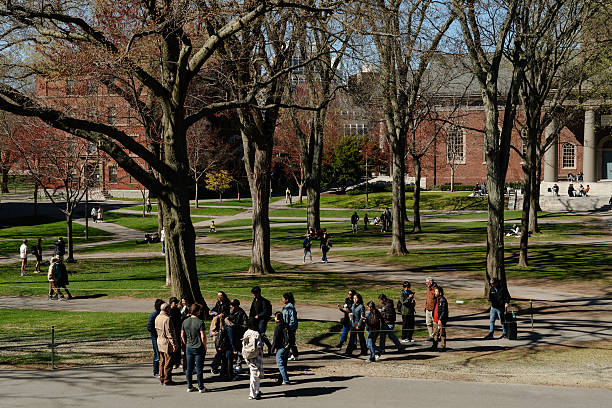
As U.S. colleges roll back diversity, equity, and inclusion (DEI) programs under pressure from the Trump administration, some students of color are seeing what they consider critical campus support systems disappear, raising fears of renewed isolation at predominantly white institutions.
Officials at the University of Michigan have announced the closure of the school’s DEI office and the cancellation of a campus-wide inclusion plan, according to recent reports.
As DEI offices close and support programs vanish, some students of color could be wondering what the future holds for them in higher education.
Among the cuts are orientation events for Latino, Arab, and Asian American students, as well as the LEAD Scholars program, which offers financial aid to Black, Latino, and Native American students.
“It feels like we’re going back. I don’t know how else to describe it,” said Breeana-Iris Rosario, a junior at Michigan, in an interview with ABC News. “It’s like our voices aren’t being heard.”
The withdrawal from DEI programs began years ago in Republican-led states but has accelerated after a February memo from the U.S. Department of Education ordered schools to eliminate race as a factor in decisions related to hiring, admissions, housing, financial aid, and more.
The memo warned institutions that violations could result in a loss of federal funding, as reported by ABC News.
The DEI cuts come as these initiatives are shown to have significant positive impacts on Black students and other underrepresented groups.
A 2023 report from the American Council on Education underscored how DEI programs have been instrumental in increasing retention rates among students of color at predominantly white institutions by fostering a greater sense of community and belonging.
Experts caution that without these programs, enrollment and graduation rates for Black students could face a decline.
RELATED: How Target’s Profits Plummeted Amid Boycott Calls and DEI Controversy

Students like Rosario, who grew up in a low-income part of Detroit, say programs such as the LEAD Scholars award and Latino student move-in events were key to building community on campus. Without them, she fears new students will struggle to find a sense of belonging.
“It would be hard to find my community if I didn’t have access to these resources,” Rosario told ABC News.
In addition to Michigan, Case Western Reserve University in Cleveland has also shuttered its DEI office, citing the need to comply with federal directives.
“It is clear we must be in compliance with them to receive the federal funding that is critical to our present and future,” Case President Eric Kaler wrote in a campus message.
Meanwhile, Harvard University has publicly resisted the federal orders. In response, the Trump administration froze two billion in research grants and contracts to the university.
Federal funding to other institutions, such as Northwestern and Cornell, has also been suspended over alleged violations of civil rights obligations tied to DEI practices.
Rosario said that although Michigan has promised existing financial aid packages will not be affected, future students may not have access to the same scholarship opportunities. “They’ve taken away our sense of community,” she said. “It just makes it that much harder for people of color to feel comfortable pursuing higher education.”
The broader trend could reshape the demographics of American higher education. Federal grants and contracts make up a significant share of university budgets—up to 40 percent at institutions like Johns Hopkins University, according to the Associated Press.
The threat of losing access to those funds has forced many colleges into compliance, often at the expense of diversity initiatives.
President Trump issued an executive order in early 2025 to eliminate DEI programs in public schools and universities, threatening to withhold federal funding from institutions that continue such initiatives.
A federal judge recently blocked parts of Trump’s efforts, ruling that the administration’s directives against DEI programs were unconstitutionally vague and could not be enforced.








